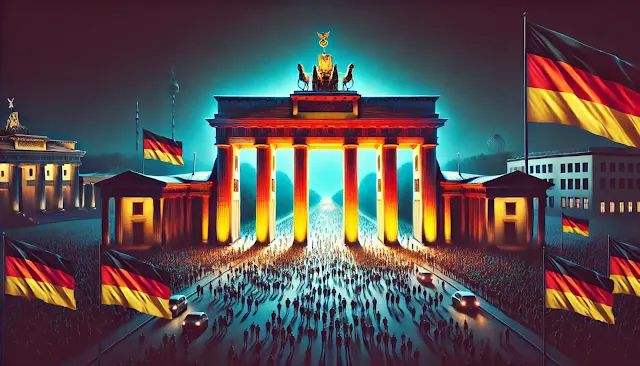German Unity Day, celebrated every year on October 3rd, is one of the most important dates in Germany's history, commemorating the reunification of East and West Germany. This day evokes a deep sense of national pride for Germans and symbolizes the triumph of democracy and freedom worldwide. In this post, we'll explore the historical background and significance of German Unity Day, the various ways it is celebrated, and what it means for Germany today.
Historical Background of German Unity
After World War II, Germany was divided into four occupation zones controlled by the United States, the United Kingdom, France, and the Soviet Union. This division soon led to the creation of East Germany (the German Democratic Republic) and West Germany (the Federal Republic of Germany), as the Cold War tensions escalated. In 1961, the East German government erected the Berlin Wall to prevent mass emigration to the West, creating a physical and ideological divide between the two sides of Germany.
During the late 1980s, political changes and reform movements swept through Eastern Europe. The East German government faced growing demands for freedom and democracy from its citizens, ultimately leading to the fall of the Berlin Wall on November 9, 1989. Less than a year later, on October 3, 1990, Germany was officially reunified, marking the end of decades of division.
Celebrations of German Unity Day
German Unity Day is marked by official ceremonies across Germany, including speeches by the President and Chancellor, honoring the achievements of reunification and reflecting on the challenges that remain. The main celebration is held in a different city each year, allowing the whole country to participate in commemorating this significant event.
Besides official ceremonies, various community events, such as street festivals, concerts, and cultural programs, take place across the country. The Brandenburg Gate in Berlin often serves as a focal point for celebrations, with thousands gathering to witness fireworks and enjoy festivities. These celebrations offer a chance for people to reflect on the significance of unity and freedom in their lives.
German Unity Day also serves as an educational opportunity for young generations to learn about the history of division and reunification. Schools and universities host lectures and discussions, helping students understand the struggles and achievements that shaped modern Germany.
The Current Significance of German Unity
The reunification of Germany is more than just the merging of two nations; it also represents a pivotal moment in the history of European integration. A unified Germany has played a leading role in the European Union, promoting political and economic cooperation throughout the continent. German Unity marked the end of the Cold War era and the beginning of an era of peace and collaboration in Europe.
Despite the significant progress made since reunification, challenges remain, particularly concerning economic disparity between former East and West Germany. Efforts to bridge this gap have been ongoing, with various policies and programs aimed at promoting equal opportunities and economic development throughout the country.
For Germans today, German Unity Day is a reminder of the values of freedom, democracy, and solidarity. It serves as a celebration of the nation's resilience and the ability to overcome division, offering hope and inspiration to other nations facing similar challenges.
Conclusion
German Unity Day is more than a historical commemoration; it is a celebration of present and future aspirations. The reunification of East and West Germany symbolizes the victory of freedom and democracy, as well as the resilience and solidarity of the German people. By reflecting on the events of the past, Germans can appreciate the significance of unity and continue to build a peaceful and prosperous future.
As we observe German Unity Day, let us remember that the journey from division to reunification required the collective will of a nation. It is a powerful reminder of the importance of freedom, solidarity, and the ongoing effort to create a unified and prosperous society.
 |
| German Unity Day |
